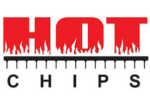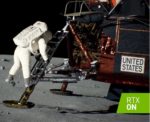In this podcast, the Radio Free HPC team looks back at the HPC-AI on Wall Street conference. “We discuss the well-received Cryptocurrency panel that he moderated, the challenges of using of AI in financial services, the emerging computational storage, and advanced HPC-class modeling that helps venture capital investors decide whether to invest in a startup.”
Podcast: Extreme Power and Cooling Efficiency at DownUnder GeoSolutions
In this podcast, the Radio Free HPC team looks at an interesting presentation on Power and Cooling by Stuart Midgley from DownUnder Geosolutions. Their 250 Petaflop “Bubba” supercomputer uses immersive cooling for extreme density and power efficiency.
Podcast: IO500 Benchmark Gains Traction
In this podcast, Radio Free HPC hosts the IO500 Steering Committee. “Storage is complicated and benchmarking it has too many complexities for the traditional kernel-like or application-specific approaches. Thanks to a few experienced and tenacious researchers, and the community that supports them, the IO500 has managed to put a credible stake in the ground, and is getting traction, with 101 entries on the current list and expecting many more by SC19.”
Radio Free HPC Recaps the Hot Chips Conference
In this podcast, the Radio Free HPC team is joined by Glenn Heinle to review the highlights of the Hot Chips conference. “Since it started in 1989, HOT CHIPS has been known as one of the semiconductor industry’s leading conferences on high-performance microprocessors and related integrated circuits. The conference is held once a year in August in the center of the world’s capital of electronics activity, Silicon Valley.”
Podcast: Cray Pulls an Exascale Hat Trick
In this podcast, the Radio Free HPC looks at Cray’s series of big wins for DOE Exascale systems. “Guess who’s having a great year? Think Aurora, Frontier, and El Capitan. Cray has put some nice numbers on the accounts receivable ledger, and these are not ordinary numbers. The Exascale era is being defined substantially by the DOE Coral program and the commercial markets are watching as their computing needs start looking like those of the national labs.”
Podcast: AMD is Back to Glory Days wit Rome CPU
In this podcast, the Radio Free HPC team looks into the AMD Rome CPU, a beast that brings back the glory days of Opteron and establishes itself as the chip to have, and establishes AMD as the company to beat. After that, they kick off their new regular segment: Henry Newman’s Feel-Good Security Corner.
Podcast: Who will benefit from Intel dropping Omni-Path?
In this podcast, the Radio Free HPC team takes a close look at the history of High Performance Interconnects, recent news, and how the market is changing profoundly. “The departure of Intel from this segment is good news for some, and it remains to be seen what strategy Intel will adopt for the HPC market.”
Podcast: Is Cloud too expensive for HPC?
Is Cloud too expensive for HPC? Enquiring minds want to know, as does the HPC community whose single-minded obsession with maximum price-performance is notorious and legendary. The Radio Free team looks at actual cloud pricing based on available data and Dan’s research which fuel a hearty discussion. They look at configurations, compare prices, talk about the costs that are not included, segment the market, and then segment the applications.
Podcast: Quantum Applications are Always Hybrid
In this podcast, the Radio Free HPC team looks at inherently hybrid nature of quantum computing applications. “If you’re always going to have to mix classical code with quantum code then you need an environment that is built for that workflow, and thus we see a lot of attention given to that in the QIS (Quantum Information Science) area. This is reminiscent of OpenGL for graphics accelerators and OpenCL/CUDA for compute accelerators.”
Video: Reliving the First Moon Landing with NVIDIA RTX real-time Ray Tracing
In this video, Apollo 11 astronaut Buzz Aldrin looks back at the first moon landing with help from a reenactment powered by NVIDIA RTX GPUs with real-time ray tracing technology. “The result: a beautiful, near-cinematic depiction of one of history’s great moments. That’s thanks to NVIDIA RTX GPUs, which allowed our demo team to create an interactive visualization that incorporates light in the way it actually works, giving the scene uncanny realism.”











